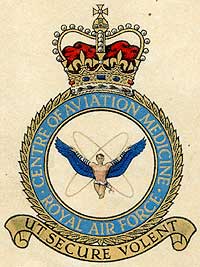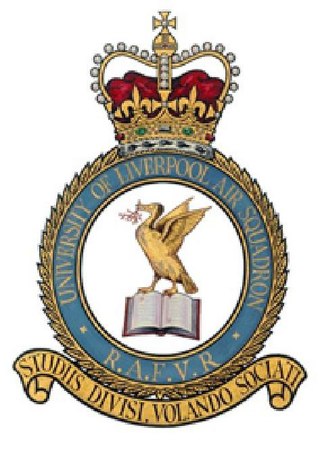Related Research Articles

London Biggin Hill Airport is the main international airport serving Biggin Hill in the London Borough of Bromley, located 12 NM south-southeast of Central London. It specialises in general aviation, handling a spectrum of traffic from private aviation to large business jets. It currently has no scheduled airline service, as flights using the airport are not permitted to carry fare-paying passengers.

Royal Air Force Digby otherwise known as RAF Digby is a Royal Air Force station located near Scopwick and 11.6 mi (18.7 km) south east of Lincoln, in Lincolnshire, England. The station is home to the tri-service Joint Service Signals Organisation, part of the Joint Forces Intelligence Group of Joint Forces Command. Other units include the RAF Aerial Erector School, No. 54 Signals Unit and No. 591 Signals Unit.

Royal Air Force Cranwell or more simply RAF Cranwell is a Royal Air Force station in Lincolnshire, England, close to the village of Cranwell, near Sleaford. Among other functions, it is home to the Royal Air Force College (RAFC), which trains the RAF's new officers and aircrew. The motto, Altium Altrix, meaning "Nurture the highest" appears above the main doors of the Officers Mess. Since January 2023, RAF Cranwell has been commanded by Group Captain Tina Jessup.

Army Officer Selection Board(AOSB) is an assessment centre used by the British Army as part of the officer selection process for the regular army and Army Reserve and related scholarship schemes. The board is based at Leighton House, Westbury in Wiltshire, England in a dedicated camp. It is commanded by the President AOSB, a colonel in the British Army, supported by a number of vice-presidents.
The Graduate Medical School Admissions Test is a test used to select candidates applying to study medicine, dentistry, optometry, pharmacy and veterinary science at Australian, British, and Irish universities for admission to their Graduate Entry Programmes. Candidates may take the test in a test centre in one of the 6 countries, being Australia, Ireland, New Zealand, Singapore, the United Kingdom and the United States, offering the test.
The Royal Air Force Volunteer Reserve (Training Branch), often abbreviated to RAFVR(T), was a Volunteer Reserve element of the Royal Air Force specifically appointed in a cadet training role within the Royal Air Force Volunteer Reserve. Members of the RAFVR(T) had no call-up liability and often operated part-time with the Air Experience Flights and Volunteer Gliding Squadrons, which provide flight experience for the Royal Air Force Air Cadets.
The University Clinical Aptitude Test (UCAT) is an admissions test used in the selection process by a consortium of universities in the United Kingdom, Singapore, Australia and New Zealand for their medical and dental degree programmes. UCAT is needed, except very few universities, for admission into undergraduate medical degrees in Australia, New Zealand, Singapore, and UK. Launched in 2006 as the UK Clinical Aptitude Test (UKCAT), it was renamed in 2019 following the launch of the test in Australia and New Zealand.

The Admiralty Interview Board (AIB) is a key element of the officer selection process for the Royal Navy, Royal Marines, Royal Naval Reserve, Royal Marines Reserve, and Royal Fleet Auxiliary.
OASC may refer to:

The European Personnel Selection Office (EPSO) is responsible for selecting staff to work for the institutions and agencies of the European Union including the European Parliament, the European Council, the Council of the European Union, the European Commission, the European Court of Justice, the Court of Auditors, the European External Action Service, the Economic and Social Committee, the Committee of the Regions and the European Ombudsman. Each institution is then able to recruit staff from among the pool of candidates selected by EPSO. On average, EPSO receives around 60,000-70,000 applications a year with around 1,500-2,000 candidates recruited by the European Union institutions.

Services Selection Board (SSB) is an organization that assesses the candidates for becoming officers into the Indian Armed Forces. The board evaluates the suitability of the candidate for becoming an officer using a standardized protocol of evaluation system which constitutes personality, intelligence tests, and interviews. The tests are of both types i.e. written and practical task-based. An SSB comprises the panel of assessors, who are officers in the Indian Armed Forces and having their specialization as Psychologist, GTO, and Interviewing Officer. At times the psychologist may not be directly from the armed forces as well. In total there are thirteen Service Selection Boards across India, out of which four boards are for the Indian Army, four boards are for Indian Air Force, and five boards for the Indian Navy. (SSB) is a 5 days evaluation process.

The Royal Air Force College (RAFC) is the Royal Air Force military academy which provides initial training to all RAF personnel who are preparing to become commissioned officers. The College also provides initial training to aircrew cadets and is responsible for all RAF recruiting along with officer and aircrew selection. Originally established as a naval aviation training centre during World War I, the College was established as the world's first air academy in 1919. During World War II, the College was closed and its facilities were used as a flying training school. Reopening after the War, the College absorbed the Royal Air Force Technical College in 1966.
The Potential Regiment Officers Course (PROC) is an assessment tool of the Royal Air Force (RAF) in the United Kingdom, for people wishing to become an Officer in the Royal Air Force Regiment. Currently the candidates, who as of September 2017 can be male or female, will already have passed the Officer and Aircrew Selection Centre. It has been in existence since April 2008, where it was previously known as the Potential Regiment Officers Acquaintance Course (PROAC). This name was changed due to confusion over whether the course was assessed or merely an introduction to the RAF Regiment.
The Thinking Skills Assessment (TSA) is a generic admissions test, which is used as part of the admissions process for entry to some undergraduate courses at the University of Cambridge, the University of Oxford, and Hanoi University of Science and Technology.

The RAF Centre of Aviation Medicine is a medical organisation run by the Royal Air Force and based at RAF Henlow in Bedfordshire. It is the main organisation conducting aviation medicine research in the UK.

An assessment day is usually used in the context of recruitment. On this day, a group of applicants who have applied for a particular role are invited to an assessment centre, where a combination of selection techniques are used by the employers to measure the suitability of an individual for the job role. These selection technique usually include exercises such as presentation, group exercise, one to one Interview, role play, psychometric test etc. Most large organisations like banks, audit and IT firms use assessment days to recruit the fresh talent in their graduate programmes. With an increase of popularity of assessment days, several training institutes have been formed that prepare candidates for assessment days, for example, Green Turn is a famous institute that prepares candidates for assessment days of big 4 accountancy firms.
The BioMedical Admissions Test (BMAT) is an aptitude test used as part of the admissions process for Medicine, Biomedical Sciences and Dentistry in some universities in the United Kingdom, Singapore, Spain, Malaysia, Thailand, Hungary, Croatia and the Netherlands. As of 2024, most participating UK universities have scrapped the BMAT in favour of UCAT.

Liverpool University Air Squadron is a training unit of the Royal Air Force which provides basic flying training, adventurous training and personal development skills to undergraduate students of the University of Liverpool, University of Lancaster, Edge Hill University, Bangor University and Liverpool John Moores University.
Royal Marines recruit training is the longest basic modern infantry training programme of any Commonwealth, or North Atlantic Treaty Organization (NATO) combat troops. The Royal Marines are the only part of the British Armed Forces where officers and other ranks are trained at the same location, the Commando Training Centre Royal Marines (CTCRM) at Lympstone, Devon. Much of the basic training is carried out on the rugged terrain of Dartmoor and Woodbury Common with a significant proportion taking place at night.
War Office Selection Boards, or WOSBs, were a scheme devised by British Army psychiatrists during World War II to select potential officers for the British Army. They replaced an earlier method, the Command Interview Board, and were the precursors to today's Army Officer Selection Boards. The WOSBs were also later adapted to civilian purposes such as selecting civil servants and firemen.
References
- ↑ Richard C Smith, Second To None, p134, Grub Street, 2004, ISBN 1-904010-78-4
- ↑ Hansard on questions to Secretary of State on move to RAF Cranwell from RAF Biggin Hill
- ↑ "RAF Pilot Application Process". RAF Recruitment. Retrieved 2 January 2024.
- ↑ "RAF CBAT TMI". RAF CBAT TMI. Retrieved 2 January 2024.
- ↑ "Results and Scores". RAF CBAT TMI. 25 March 2018. Retrieved 2 January 2024.